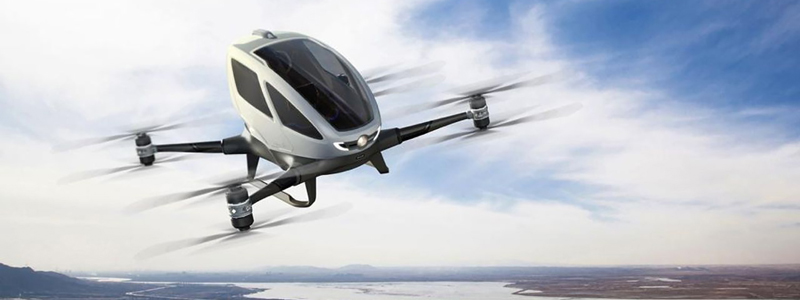The speed with which technology continues to progress has been a discussion point throughout history, which started well before we had the means to document our conversations. While there’s no doubt that the tools we have invented to manage the way we live and work have brought benefits, many have caused considerable disruption, not just to industry, but entire economies. There’s also a risk with the adoption of new technology that it may fail or be replaced early in its lifecycle after we’ve made a significant investment.
Recently, I attended the RSM Business & Finance Symposium: Face the Future with Confidence. Presenting on The Future of Work: How Innovation will Transform our Working Environment, Andrew Sykes pointed to a 2017 National Geographic Magazine article that ranked the top 10 innovations that changed the world. You may be surprised to know that personal computers only ranked fourth (to the printing press at number one). Smartphones didn’t even make it into the list.
Lately the perceived threat of Artificial Intelligence (AI) hovers like a drone over those of us employed in professional services. Could lawyers for example, traditionally well remunerated for their knowledge and ability to interpret complex laws, be replaced by highly accurate legal advice via AI on demand? Yet Sykes reported that the World Economic Forum estimates only a 45% probability that we’ll see an AI machine on a corporate board of directors by 2025.
From his accounting perspective, Sykes described the effect of the invention of spreadsheets: Computerised ledgers displaced manual bookkeepers, but productivity gains enabled firms to offer their services to a broader market, which had a flow-on effect leading to an increase in demand for accountants.
However, what really got me thinking (and to some degree made me a little nervous) was when Sykes mentioned how quickly robots learn. It’s the daunting ability of robots to learn without relying on human inputs which is realised as AI gone rogue in the post apocalypse genre of science fiction films like The Terminator (coincidentally released in 1984).
Some will know about Deep Blue, at the time a ‘supercomputer’ developed by IBM specifically for playing chess, which went on to beat reigning world champion Grandmaster Garry Kasparov in a chess match. Deep Blue could analyse 200 million positions per second. That’s impressive. Then came AlphaZero, a computer program developed by the AI research company DeepMind (bought by Google for $500m), who not only mastered chess, but the games Go and shogi. Within 24 hours, this superhuman player defeated other world-champion programs, Stockfish and elmo. AlphaZero searches just 80,000 positions per second in chess (compared to 70 million for Stockfish) but AlphaZero compensated for the lower number of evaluations by using its deep neural network to focus selectively on the most promising variation. This ability to learn is what will impact us and the future way we work or deliver outputs.
Robotics have already had a significant impact on the way we work, most obviously in manufacturing. Other sectors to be impacted over the next 20 years will be ICT, advanced materials, biotechnology, medicine, energy and sensors & monitoring. We already know about driverless cars, but the focus has quickly shifted to pilotless drones (with human carrying capacity). Robotics are playing an ever increasing role in medicine and are perfect for delicate micro-surgery. The flip-side, medical science with nano-technology can identify cancer, but cannot inform a patient with empathy or make moral judgement about an end-of-life decision.
This is where the human element plays a key role in our society. When we are ‘doing business’, human interaction continues to be important in the decision-making process. There is a subjective psychology behind, “I know you, I like you, I trust you” when we are making business decisions and is often the path to building relationships that lead to buying decisions. Senior leaders and executives must seek input from their multiple stakeholders if they want their organisation to be successful. Encouraging the sharing of ideas and robust debate helps define an organisation’s culture, which can then be integrated into organisational design and strategy. The style of people, their values, leadership abilities and team dynamics are qualities that could be assessed by psychometrics and other automated abilities tests, but interpretation and feedback is always going to require human input and sensitivity.
So while AI will increase in the workplace, psychology will remain a resource for helping people cope with uncertainty and change. As the world becomes increasingly more reliant on technology, so will the need for human-based counselling. People need to connect with other people to address social problems (isolation, sleep disorders, uncertainty of work). So while we can comfortably transact with a chatbot to resolve common customer service problems (paying a bill or rescheduling a flight), the human element of dialogue, emotional connection and physical touch will prevail.
In the Executive search cosmos, the human interaction and skills needed to listen, interpret, challenge, advise, influence and negotiate are arguably unique to us mere mortals, especially when there are no hard and fast rules on where empathy, compassion and sometimes ‘tough love’ are required. Yet we use AI in our daily work lives to help make decisions and processes more efficient. As recruitment guru Greg Savage has said, “AI is not a threat if you use it to soak up all the drudgery so you can become better at selling, and consulting and creating outcomes.”
It’s often said people are the most valuable assets to any organisation. From a hiring perspective, attracting the talent (people) that will predict the future, innovate, and disrupt is vital to the success of any business. As executive search consultants, we humanise what can otherwise be a dehumanising experience (think video interviewing, on-line applications, and assessments). We provide delicate feedback to unsuccessful candidates, and do so often face-to-face, so we can read and interpret the feelings of people and adjust our delivery as required. We offer advice to those facing a significant lifestyle change that comes with relocating internationally to take up a new post, or moving on from a company in which you have deeply invested.
For executives, being prepared to ask ourselves how we might embrace AI and other disruptive technologies and help our businesses thrive is essential. How will we interface with AI and robotics in the future? What role will we play versus our technological colleagues? Are we investing in the right capabilities (people and technology) that will allow us to grow and succeed in a rapidly evolving commercial environment? They’re questions that we might not want to ask, might not think that we need to ask, but absolutely have to ask. And no amount of artificial intelligence can do that for us.
In this digital age, how will you not just survive, but thrive? What is the future of work for people in your industry or sector?

Bill Sakellaris has a long and reputable profile in executive search spanning 25 years. His prime focus is on securing CEOs, ‘C’ suite executives and senior professionals across a broad range of sectors including industrials, property, infrastructure and professional services. Bill is the Managing Director of TRANSEARCH Australia and Regional Vice President – Asia Pacific of TRANSEARCH International. Read more…


